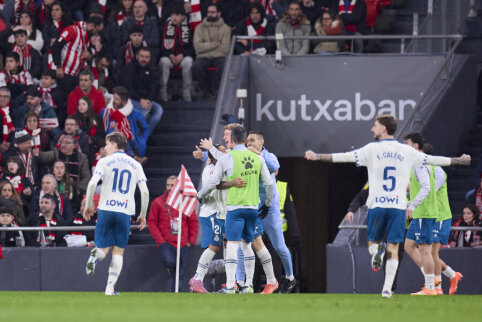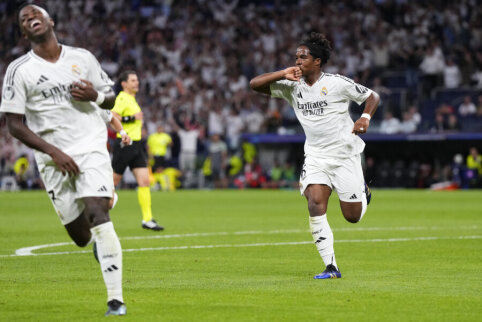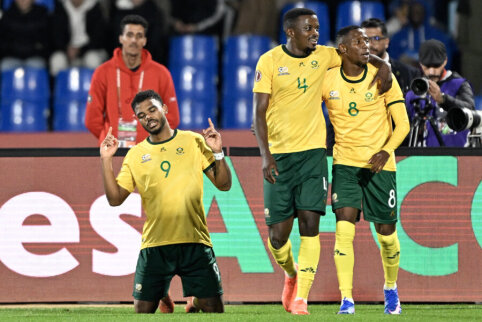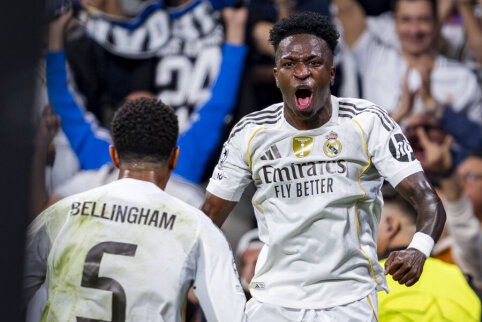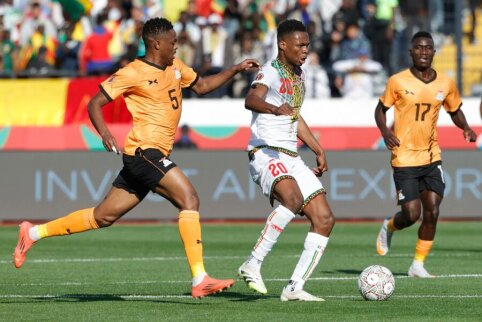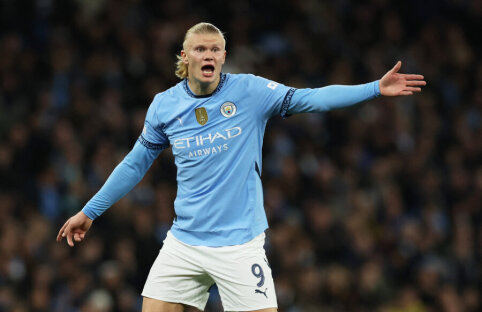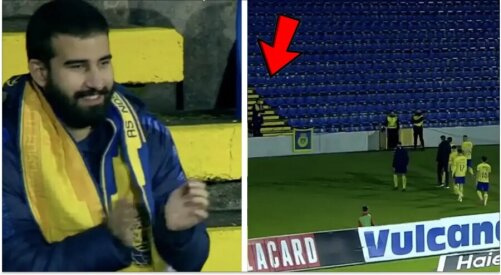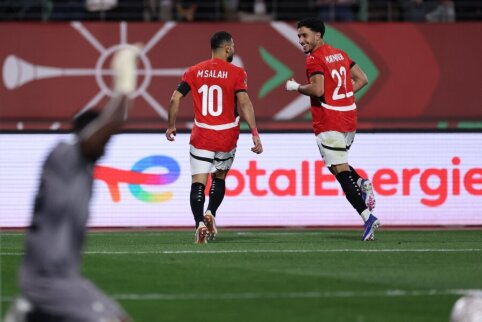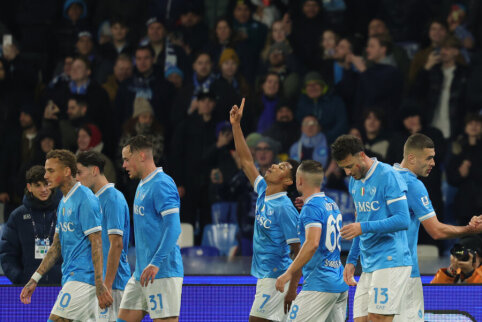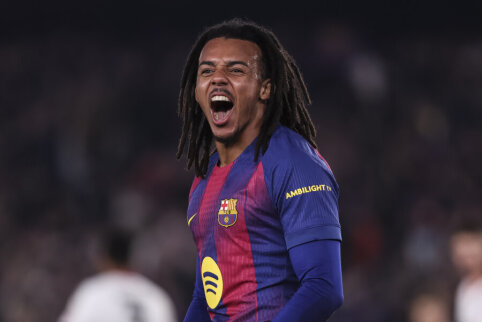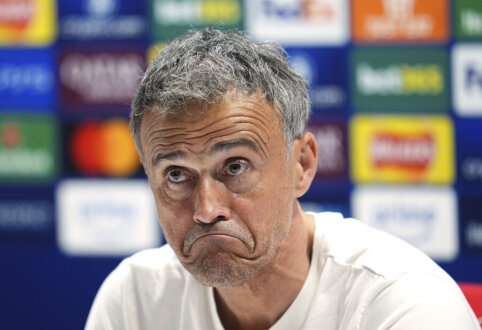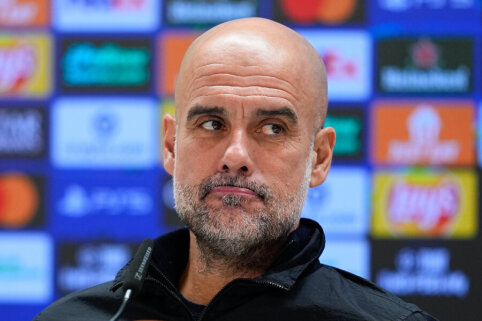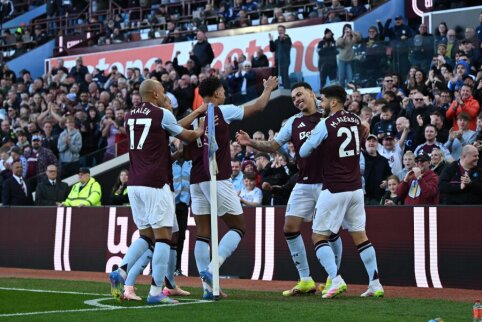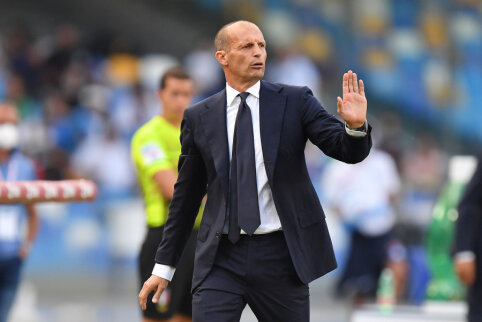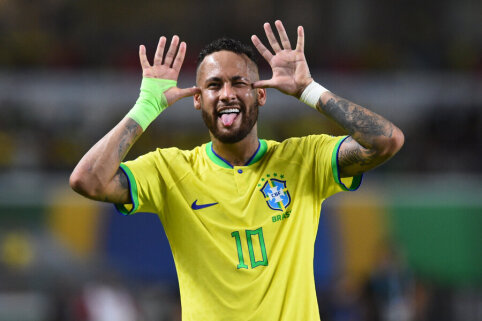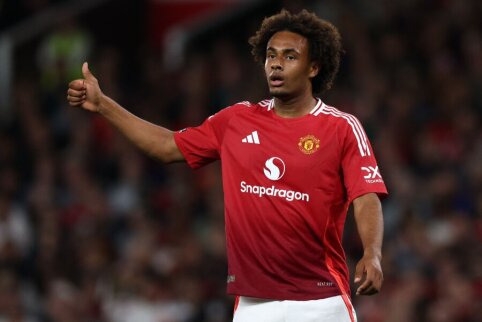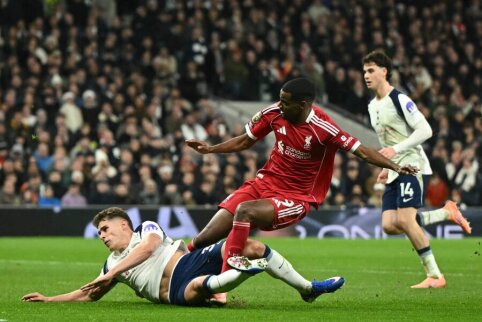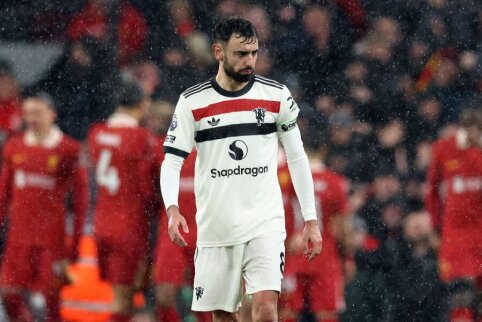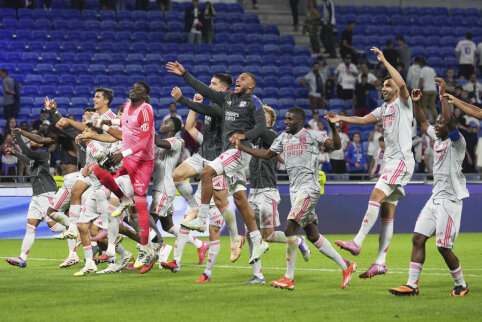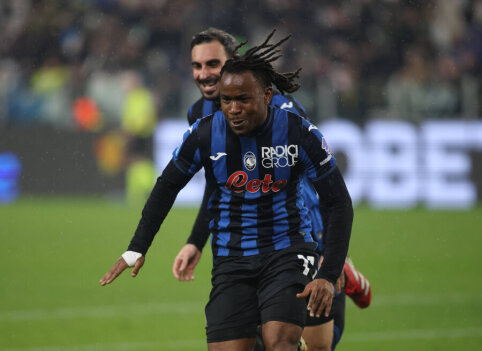 © EuroFootball.com
© EuroFootball.com
After the battles of the World Cup have ended, website visitor Giedrius expresses his opinion about the past tournament in the "Tribune" section.
Reminder: you can send your articles to the address [email protected]
Using the opportunity on this website to freely express my opinion, I want to share my thoughts on the recently concluded World Cup. In this article, I am not trying to conform to the opinions of others; these thoughts are my own, so without a doubt, biased and in no way do I seek everyone to agree with my thoughts. I will try to summarize this championship by highlighting the impact of Italy's victory in the final on world football in general.
Benefits for football after Italy's triumph:
1. Restoration of Italy's football prestige.
When it seemed like all of Italian football was heading towards ruin and completely corrupted, a bright light appeared at the end of the dark tunnel. It turns out that Italians can win without the help of wealthy club owners, politicians, or referees. Knowing that all Italian national team players play in Serie A, the prestige of this league should significantly increase, as many World champions also play here. We have heard numerous footballers saying that Serie A is the "toughest" league in Europe, and now it will be much harder to argue with the statement that it is the strongest league in Europe.
2. Good defense can neutralize good offense.
This was proven by Greece in the 2004 European Championship, and Italy in this World Cup. Although there were no teams in this championship that scored 3-4 goals in every match, the Italians only conceded two goals and only one of them was scored by an opponent, Cristian Zaccardo, into his own net. This showed that it is not necessary to have exceptional talents in attack; by defending well, there will always be opportunities for quick counterattacks. Additionally, perfecting corner and penalty kick execution can lead to becoming World champions one day. This is an example that should particularly inspire smaller teams, both in terms of the country's population and achievements on the international stage.
3. The best football is played in Europe.
This was proven by the fact that all semifinalists were from Europe. This continent needed World champions, primarily for financial reasons from advertising, as now it will be much easier for clubs to organize friendly matches with World champions, without having to travel to Brazil to gather all their stars for a friendly match. Everything has become much easier, and it is no secret that the best money in football is made in Europe, so having "your" World champions is entirely beneficial; this will greatly increase the prestige of the upcoming 2008 European Championship. The golden opportunity to once again engrave your name in the first pages of world newspapers or to be next to World champions in other media news has also appeared for Lithuania. We will have the perfect opportunity not only to see the World champions and runners-up in Lithuania, but the Football Federation can also earn a lot of money from this, which we hope will be allocated to Lithuanian football, as we do not have stadiums of the appropriate level for such events, which is another topic.
4. Football is a team game.
In this World Cup, there were teams whose game directly depended on one or two players; their absence meant that the team had minimal chances of winning that day. In the Dutch national team, one such person was Arjen Robben, in the Ghanaian national team, Michael Essien, in the Ukrainian national team, Andriy Shevchenko, in the Ivory Coast national team, Didier Drogba, and so on. Throughout the championship, it was difficult to identify the true leader of the Italian national team, without whom the team's game would collapse.
Alessandro Nesta, considered one of the best defenders in the world before the championship, was nearly injured throughout the entire tournament; did this affect the Italian defense? No.
Francesco Totti was considered a prominent leader in the Italian national team's attack before the championship, and he was supposed to create all the opportunities for the team's forwards; did he do so? No. However, this did not ruin the team's game. Andrea Pirlo distributed the balls perfectly in the midfield, and after F. Totti's injury in the attack, Alessandro Del Piero replaced him, and the Italian game did not collapse—moreover, it seemed more interesting and fresher.
It can be stated that the strength of this team was its defense, with goalkeeper Gianluigi Buffon shining, and captain Fabio Cannavaro flawlessly fulfilling his duties in defense. Still, would the Italian game have collapsed if A. Peruzzi had taken G. Buffon's place in goal, with M. Materazzi and A. Nesta in defense? It can be confidently said that if the game had deteriorated, it would have been only slightly. In this team, there were 20 equal players who knew and performed their functions perfectly, and that was the strength of this team.
5. Marcello Lippi.
The bald-headed football specialist certainly deserves the highest accolades because during a difficult time for Italian football, when the country was gripped by football corruption scandals, he decisively took action and put together a cohesive team whose goal was to win at any cost and by any means. Successfully coaching Juventus in Turin for many years, Lippi once again proved himself as a brilliant coach capable of achieving victories even with teams that are not the strongest. It can also be said that Italy's national team finally found success. After losing in the semifinals in a penalty shootout against Germany in 1990, in the final against Brazil in 1994, and in the quarterfinals against France in 1998, if we add the fatal failure in the 2000 European Championship final when two goals were conceded in the last moments against France - we could confidently say that Italy finally started to succeed after so many failures.
Damage to football after Italy's triumph:
1. Catenaccio and its variations are spreading throughout world football.
The most modern tactical scheme in football becomes 1-4-5-1. Not only did weak teams use this scheme in the championship, which would be completely understandable and justified, but also football giants like England, the Netherlands, France, and Portugal. Likely, almost all the teams participating in this championship played with this tactical scheme. The proponents of this scheme will certainly argue that this tactic can quickly transform from 1-4-5-1 to 1-4-3-3, but in my opinion, and not only mine, this tactic is harmful to attacking football because it is very cautious. Sometimes it even became pitiful for the striker, even if it was Thierry Henry or Pedro Pauleta, who had to beat 3-4 opponents alone, and when the situation seemed hopeless, they resorted to distant shots towards the goal, desperately hoping to surprise an unprepared goalkeeper. What is Catenaccio? It is cautious football - catch the opponent off guard, counterattack, score, and defend. Why is this tactic harder to implement against weaker opponents? It is simply because those opponents also play with this tactic, and when Italians are forced to attack, it becomes much harder to defend. Do we need evidence? Italy - USA 1:1, Italy - Australia 1:0, I still vividly remember the Italian match against Lithuania in Kaunas, which ended 0:0. I would not be surprised if the Lithuanians achieved a positive result against the Italians in this qualifying cycle.
2. Acting, provocation, and other unattractive qualities of World Cup champions.
It cannot be said that only Italians have mastered the art of acting; there were many players who not only played in this championship but also feigned injuries or provoked opponents, especially Cristiano Ronaldo, Ricardo Carvalho, Deco, and even Zinedine Zidane or Ronaldinho in some episodes. It just became part of football. I recently read an article by a World Cup reviewer from the USA, and a very wise and simple idea stuck with me: if there is a collision between players or a substitution is taking place, the game clock should simply be stopped to avoid players wasting time. This would make the game simpler and easier for referees, as they would not have to think about how much time to add. The end of the match could be announced not by the referee's whistle but by a siren. Would this take away the work on the field from referees? I certainly do not think so; they would still be the main actors regulating the game. However, this would reduce the elements of acting in players' actions because wasting time would be pointless. The art of provocation also becomes part of football, although it cannot be called racism. However, FIFA's initiatives to combat discrimination in the stands before the start of matches seem quite ambiguous, especially considering the case of Luis Aragonés. More on the cases with Zidane and Materazzi will be expressed in the next part, but to provoke an opponent, it is not necessary to push him or flick him, it is enough to use insulting phrases, disrespectful gestures, and so on. Such insulting phrases may not be considered actions, but in some countries, such as the USA, this is sometimes enough, and even large sums of money can be won in court as compensation. In other cases, people are ready to defend the honor of their family or religion, and after such phrases, the next action would follow. The only way to fight these evils is not only to punish the footballer for acting thoughtlessly and completely unjustifiably but also to find out why it happened and what led him to behave that way. There is never an action without a reason, without the initial action.
3. Is Marco Materazzi worthy of becoming a World champion?
Materazzi denied that he headbutted Zinedine Zidane, saying that he called Zizou a dirty terrorist, claiming that he did not even know the meaning of the word terrorist. He also claimed that he did not insult Zizou's parents as he has great respect for all parents. The more realistic version that happened on the field with 10 minutes left in extra time was as follows: after Materazzi held Zidane by the shirt, the Frenchman passing by said, "Don't rip my shirt; after the match, I will give it to you," to which provocateur replied that he did not need Zizou's shirt, but he would happily take the shirt off Zidane's wife. Was Zidane's behavior correct in that episode? 100% no. However, I would like to emphasize that football is a job, perhaps a very enjoyable one, but a job for which footballers are paid. Therefore, like all of us, if a colleague at work, or a person from a rival company, or even a passerby on the street says something insulting about your wife, the person you love the most in the world, if you are not a complete coward, I think you would act very similarly to Zizou. However, of course, knowing that it was Zidane's last match, that it was the World Cup final, and that millions of people were watching him, he could have refrained. However, Materazzi knew Zidane's biography well and knew that although he appeared calm on the outside, he was very emotional and hot-tempered inside, but he loved his wife and family very much, considering them the highest value. Therefore, Materazzi hit the jackpot with his insult. If that was his plan, he executed it perfectly, scoring the equalizing goal and converting his 11m penalty at the end of the match. If I had to choose the most valuable player of this final, without a doubt, it would be Marco Materazzi. He not only scored the equalizing goal but also realized his 11m penalty in the penalty shootout, and he led the opponents' leader out of the lineup who was excellent at scoring penalties. Well done, Marco; it's a shame you didn't do it sooner. It seems he realized that no one would remember him after five years, but now he will go down in history. Winners are never judged. So, learn, Lithuanians, and all other football academy players, if you cannot beat a player on the field one-on-one, there are always other ways, but you need to say something that would truly knock the opponents' leader off balance, and then you withstand his strike heroically, convincingly fall on the ground, and successfully face the circumstances, you will not only enter the history but may even become a World champion.
4. Is the team that wins the final after a penalty shootout really the strongest in the world?
Everyone would agree that penalty shootouts are a lottery, and the fact is that in the final, only one missed penalty from David Trezeguet separated the teams. Therefore, even in the penalty shootout lottery, it could not be said, based on facts alone, that a goalkeeper became the hero of the match, as no goalkeeper blocked an opponent's shot. So far, it has been argued that in 1994 when Brazil became World champions after a penalty shootout, it was the weakest Brazil team ever to win the World Cup. It is challenging to argue against that, as everything was determined by greater luck than the opponents. However, in that final, Brazil at least created more dangerous opportunities than the opponents, controlled the midfield, and had bright stars like Romario or Bebeto. Can it be said that in this final, the Italians dominated the game and were more deserving of victory than the French, unless Italy's fans could answer yes. The French dominated the field in the second half, creating opportunity after opportunity, and Zinedine Zidane's headbutt at the beginning of extra time was the most memorable moment. Italy played as they always did, in true Catenaccio style and waited for the penalty shootout. The French played football even with ten players. The fact that the winners are not judged, but if you asked a neutral fan if he preferred Italy, the 2006 champions, or the Brazilian team eliminated in the quarterfinals in 1982, I think the answer would be clear.
5. Respect for champions.
I have seen finals since 1982, and I have never seen a team that became World champion be so strongly booed by the spectators in the stands. If you think that only French fans were present in the stands, you are mistaken; they purchased no more than 30% of the tickets. Around 30-40% were neutral people who came to witness the historic match. In 1990 in Italy, the Argentine team with Maradona in front was booed in the final, but never as strongly as this Italian team. I would like to praise the Italians for their sacrifice, dedication, focus, and goal-seeking play, for which they have always been known. For these things, they deserve respect. However, calling Italy the strongest team in the world for the next four years, especially considering how they became champions, I, like many other neutral football fans, cannot. To reach this championship, Africa's representatives, like always, were reassuring. I would like to commend the efforts of the Ghanaian and Ivory Coast footballers to play attractively; if we combined these two teams into one, I believe we would have seen the most beautiful team in this championship. Let us hope that in four years, the World Cup will be held in South Africa, and good and, most importantly, beautiful football will be enjoyed by all.
In a few words about the championship
The organization of the championship was excellent, except for circumstances not controlled by the championship organizers - the referees' work. Franz Beckenbauer would undoubtedly be awarded the highest marks. However, did football as a game win from this championship? I certainly don't think so. Football is becoming more cautious, with defensive teams winning, and it would not surprise me if in the next championship, we see even Brazilians playing with only one forward throughout the tournament. I wanted there to be at least one team in the championship that would be thrilled not only with participation in the tournament but also playing attacking football and enjoying it. In this aspect, as always, African representatives were encouraging. I would like to commend the efforts of the Ghanaian and Ivory Coast footballers to play beautifully. If we combine these two teams into one, I think we would have the most beautifully playing team in this championship. Let's hope and based on practice, there is no reason to doubt that championships held as far away from the pragmatic football roots of Europe are always more enjoyable in terms of the game. So good and most importantly, beautiful football to everyone in the South African Republic in four years.
This opinion does not necessarily coincide with the general opinion of EuroFootball.com.

